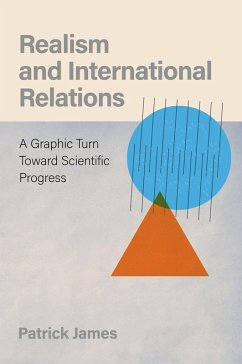Realism is one of the core theories within the field of international relations, and it generally posits a state system characterized by anarchy where states act in what they perceive to be their own self interests. It is a controversial theory, and it has many opponents. Yet effective debate among realists and those who identify with other schools of thought has diminished dramatically over time. As Patrick James argues in Realism and International Relations, scholars in the field have become dissatisfied with results from exchanges in words alone. He contends that translation of the vast amount of information in the field into knowledge requires a greater emphasis on communication beyond the use of text. Given the challenges posed by existing and intensifying information overload, he develops a new model that relies on the graphic representation of analytical arguments. As James explains, realist scholarship in the post-World War II era is the natural domain for the application of systemism, a graphic form of expression with straightforward rules for portrayal of analytical arguments, notably cause and effect within theories. Systemism goes beyond prior iterations of systems theory to offer a visualization technique borrowed and adapted from the philosophy of science. Systemist graphics reveal the shortcomings, contributions and potential of realism. These visualizations, which focus on realist theories about war, are intended to bring order out of what critics tend to describe, with some justification, as chaos. In sum, a graphic turn for realism in particular and international relations in general is essential in order to achieve the scientific progress that otherwise is likely to remain elusive. A major theoretical work by an eminent scholar, this will be of interest to all theorists focusing how the international system of states actually functions.
Dieser Download kann aus rechtlichen Gründen nur mit Rechnungsadresse in A, B, BG, CY, CZ, D, DK, EW, E, FIN, F, GR, HR, H, IRL, I, LT, L, LR, M, NL, PL, P, R, S, SLO, SK ausgeliefert werden.


